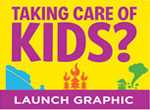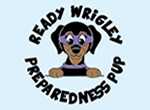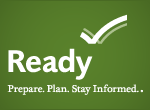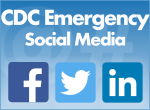Preparing Brings Peace of Mind: Zac’s Story
Planning and preparing can help keep your family safer and calmer in an emergency. Keep extra medicines and supplies on hand, and write down all the information doctors, emergency responders, and other caregivers might need to provide consistent medical care during and after a disaster.
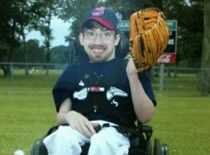
When Hurricane Katrina hit, Julie thought she was ready. She always had an emergency kit prepared because her son Zac needs medical supplies and equipment to keep him happy and healthy. Zac has spina bifida, a major birth defect of the spine; hydrocephalus, which means he has extra fluid in and around the brain; and, a number of food and drug allergies. He has sensitivities to changes in temperature and barometric pressure. Therefore, she always made sure they had a week’s worth of supplies and medicine ready when it was time to evacuate. “There is a very delicate medical balance,” she said. “When he has an issue, the dominos tend to fall quickly.”
As communities around the Gulf braced for Katrina, Julie’s family left New Orleans for Baton Rouge with their one week reserve of Zac’s medical supplies including catheters, feeding tubes, and special medications. But like most families facing the devastation of this hurricane, they ended up being gone for much longer. “It was a very challenging time for so many people, but especially for families of children with special health care needs, like ours,” said Julie. “Zac is a unique guy who needs a lot of support.”
“Now, we always keep a one month supply of Zac’s supplies in our emergency kit,” she said. “It’s critical. It’s life and death for us.” Her insurance pays for this stockpile of emergency supplies. She also keeps a document of Zac’s daily needs and medical history in print and electronic format. This vital document includes:
- Daily plan of care
- How to use his medical equipment
- Recipe for formula
- Catheterization schedule
- Allergy information: food and medication allergies, type of reaction, and what to do if he has a reaction
- Surgeries
- Diagnoses by body system
- List of his doctors with contact information
- Equipment providers
- Pharmacist
- Medications and supplies including stock numbers and basic descriptions of products for comparable substitutions
- Allergy information
- Insurance information
- Case manager for his Medicaid waiver
- Since he is over 18 – legal documentation of “continuing tutorship” which allows parents to make medical decisions for him.
- Biographical sketch including his likes/dislikes; hobbies/interests; and triggers-things that will disturb him.
Julie urges families with children who have special needs to know what emergencies are likely in their area. For Julie’s family, they know the areas that flood and prepare for hurricanes and tornados. Also they live in an area that is home to many chemical factories and a nuclear plant, so they prepare for plant explosions, nuclear reactor accidents, and fires. “Preparing and planning can give you peace of mind,” she said. “Get a kit. Make a plan. Be informed. It applies to everyone, especially to those of us who care for children with special needs.”
Children with Special Healthcare Needs in Emergencies
Children with special healthcare needs may be more vulnerable during an emergency.They may have difficulty moving from one location to another, urgent or persistent medical needs, difficulty communicating or have trouble with transitioning to different situations. A disaster can present all these difficulties at once. Knowing what to do can help maintain calm in your family and keep them safe.
For more information about emergency planning resources for families: http://emergency.cdc.gov/preparedness/.
- Page last reviewed: June 23, 2015
- Page last updated: June 23, 2015
- Content source:


 ShareCompartir
ShareCompartir
